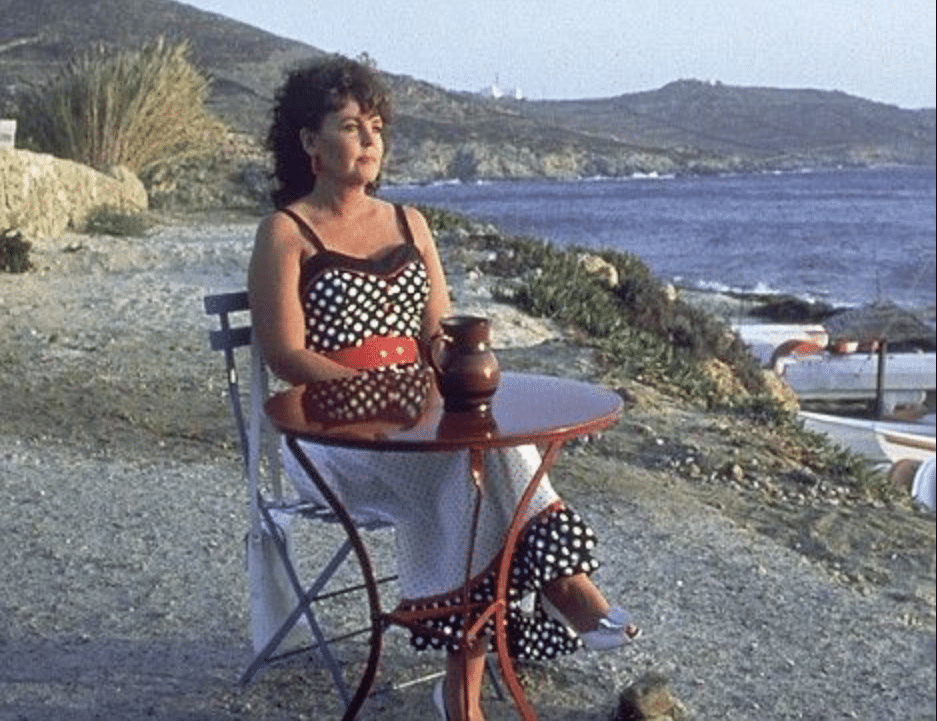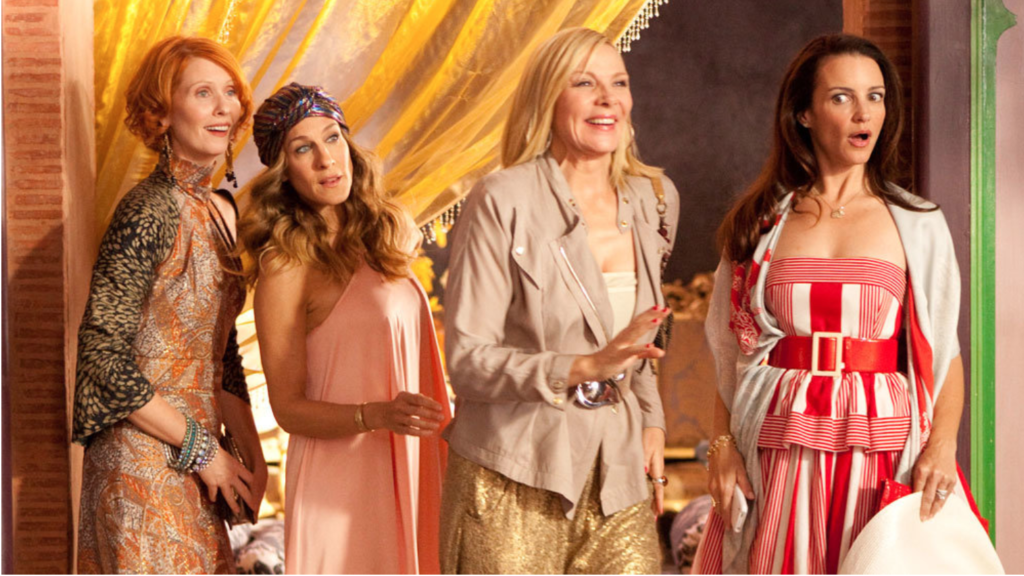Someone presented me with a challenge recently to find three movies that will help you feel better about menopause. So I had to laugh as it’s not a popular subject in Hollywood and the subject of menopause isn’t broached in many television series either. But the good news is that’s changing – women in midlife are being represented on both the small and large screen more and more.
Menopause & movies
Although menopause has long been taboo many of us are trying to open up the conversation. Additionally, we want to blow the stereotype of frumpy middle age out the window! And times are a-changing. We have it on good authority there are a couple of mature, kick-ass female screenwriters out there now. What’s more plenty of our popular leading ladies are 40, 50, 60 and 70+ and maintaining a strong screen presence.
Indeed, we have to wonder why more 40+ women in movies aren’t made because historically, movies and television shows starring 40+ women have become classics. Look at the hilarious British sitcom Absolutely Fabulous, the 1980s film Shirley Valentine (featured below), and more recently Grace and Frankie on Netflix.
Vitamin H
This ended up being a fun exercise and if there’s anything we know about you, our treasured MenoMe® community, you love vitamin H (humour). So we’ve uncovered three delightful movies that will bring a smile to your face. Plus we couldn’t resist sharing a TV scene in Fleabag that went viral starring the gorgeous Kristin Scott Thomas.
WARNING
Some of these screen moments use colourful language.
1. Shirley Valentine

This iconic English film made its debut in 1989 and still has a bevvy of raving fans. Some would say it was way ahead of its time because it broached the subject of menopause way back then. Gasp! Unheard of.
Shirley Valentine (Pauline Collins) is a 42-year-old housewife in Liverpool who spends a lot of time sipping wine and talking to the wall. Further, her kids are grown and her husband Joe doesn’t seem to notice her anymore. So when her friend Jane wins a two-week trip to Greece and invites Shirley she defies Joe and goes. And while there she falls in love with herself and decides to stay. Joe begs her to come home but she’s found her power, at 1:36 Joe says:
“You don’t know what you’re saying because you’re going through the change of life.” Shirley replies, “That’s right, Joe. That’s exactly what it is, a change of life.”
And 30 years on – dated fashion and décor aside – it’s still a goody.
You can watch the full version of Shirley Valentine free on YouTube below.
2. Sex And The City 2
The much-loved Sex and the City girls approach the subject of hot flushes and menopause in the second movie. And in true Sex and the City style Carrie, Miranda, Charlotte and Samantha are their usual glamourous selves as they join Samantha in Abu Dhabi where her ex is filming a movie. Samantha is carrying pill boxes filled with what she calls her ‘hormones’. She’s also rubbing creams on her arms and va-jay-jay in a bid to reign in her perimenopausal symptoms. What’s more, none of it dulls her trademark sexiness even the heat of the United Arab Emirates.
“I’m having a hot flash”, Samantha.
“You’re on a camel in the middle of the Arabian desert – if you’re not having a hot flash you’re dead.” – Carrie Bradshaw.
Three cheers to Sex and the City creator Candace Bushnell.
Sex and the City 2 can be seen on Netflix and purchased on Amazon.
And now there’s ‘And Just Like That’ the sequel to Sex and the City where the women are now navigating their 50s. We’re going to give that a review all of its own!
3. Something’s Gotta Give
In Something’s Gotta Give Harry Sanborn (Jack Nicholson) is a successful older man about town who has dated women under 30 for 40 years. And when he finds himself attracted to his latest conquest Marin Klein’s (Amanda Peet) mother, well-known writer Erica Barry (Diane Keaton), something’s really has gotta give. And the plot thickens when Harry is rushed to hospital with a suspected heart attack. While there, he discovers he has competition because his doctor, Julian Mercer (Keanu Reeves) develops a crush on Erica too. There’s no argument that Jack Nicholson, Keanu Reeves and Diane Keaton are consummate actors and while, technically, the film doesn’t talk about menopause per se it covers growing older, love, sex and the ‘do I still have it?’ question. Something’s Gotta Give can be viewed on Netflix and purchased on Amazon.
Bonus clip:
Why you might look forward to menopause!
Excerpt from the television series Fleabag with special guest star Kristin Scott Thomas’ epic menopause speech.
And that MenoMe-ers is a wrap!
Main image taken from movie.
Conclusion
Indeed, there are a some brilliant storylines out there making good use of vitamin H. What’s your favourite movie (or TV show) in this genre?










